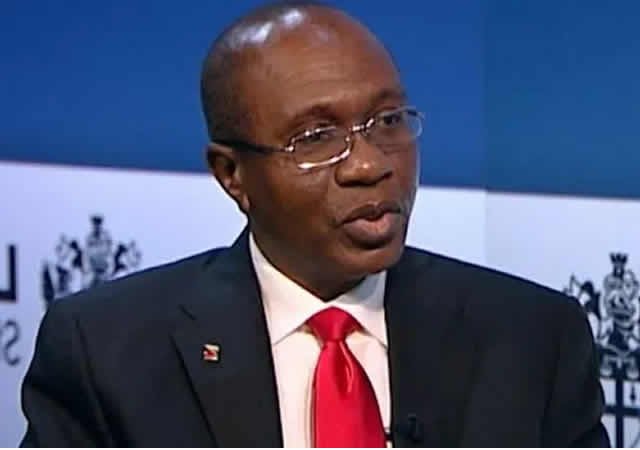Governor of the Central Bank of Nigeria (CBN), Godwin Emefiele, has listed some conditions that are mandatory for Nigeria’s exchange rate to stabilize and achieve a drop in dollar demand.
Currently, the Naira exchanges at N489 to the dollar in the parallel market and N416.08 to the dollar in the official market.
The CBN boss explained that Nigeria operates a managed float exchange rate regime, adding that Nigeria is currently developing homegrown solutions to fix its exchange rate challenges.
He said, “What is required is for you to go back and develop your homegrown solution that helps your problem. Let me say that we are on a managed float exchange rate regime, which means we cannot adopt what is being proposed, that we go on a free-float policy.
“Doing that will create an exchange rate spiral for Nigeria, as long as demand surpasses the supply of foreign exchange in Nigeria.”
According to Emefiele, Nigeria’s exchange rate problem has persisted since 1986.
“We are also doing something to adjust the currency, for instance between 2015 and now, you would observe that we have adjusted the currency from about N155 to dollar to N410 to N420 to dollar that it is today. So, we cannot be accused of not adjusting the currency. We have been gradual in doing that,” he said.
“At the same time, we are also to be given a chance, so that while we are adjusting prices, we must also do something about demand and supply. That is why we are saying that we need to do something that ensures that those things we can produce locally, are not imported so that demand for foreign exchange will be reduced, and that will ensure that prices do not rise beyond the expectations of Nigerians, and we are achieving that.
“We have done a lot of interventions in agriculture, such as rice, maize, and so on. We have stopped the import of rice and maize. With Dangote refinery coming with 650,000 barrels of oil a day, that will also reduce the volume of forex used in petrol import,” he stated.
![]()










